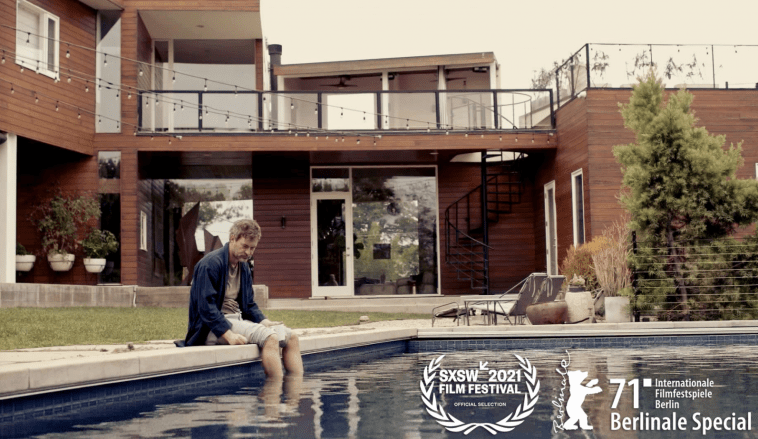
Language Lessons is the directorial debut from filmmaker Natalie Morales, who also wrote and starred in the film. Along with her co-star, Mark Duplass, the film hinges on their performances alone, being the only two faces we see throughout its entire runtime. The film premiered this year at SXSW online, and it’s hard to imagine a more perfect film to represent the strange online era we currently find ourselves in.
The film is a wonderful portrayal of two protagonists, Adam (Duplass) and Cariño (Morales) who find themselves paired together for weekly online Spanish lessons taught by Cariño and paid for by Adam’s husband as a surprise. The entirety of the film will play out in these online interactions through their webcams. Their first encounter online finds them worlds apart, Cariño in Costa Rica, and Adam in a California mansion, neither knowing what to expect of this person they are obligated to interact with on a screen. This first encounter is awkward, yet endearing. They both speak Spanish the whole time as part of the lesson which adds to their initial misunderstandings. Despite this, Cariño extends grace and good humor towards Adam and they soon find a way to connect. They are nothing more than instructor and student after the first short lesson.
Then, the film deviates into one of very few plot points, when Adam’s husband suddenly passes away. We are introduced to this news through Cariño’s eyes, or rather her screen, as a new online lesson begins finding Adam logging on late still in bed, the morning after the news of his husband’s death. The presentation of grief is very affecting here as we see his life crumble and slowly come back together through these brief glimpses into his life through the language lessons. We are left wondering if these obligatory weekly meetings will continue on or if they will fade. But soon Cariño’s presence in Adam’s life becomes much more than just a teacher, but perhaps the only person in the COVD-era that he can communicate with consistently and confide in. As their relationship develops, Adam realizes that Cariño may need his help just as much as he needs her, but not in a way we expect. At this point, the film resists the urge to be by-the-numbers “white savior” narrative and leaves us on our toes as Adam tries to help Cariño in a way that she pushes back against. The story challenges their notion of friendship and explores the awkward tension of overstepping boundaries and even saying, “I love you” too soon even in a purely platonic relationship. It’s a great exploration of making yourself vulnerable to someone else who may or may not be the right person for that.
What I love especially is how the script balances the two characters and their personal struggles, never becoming a therapy session for just one person to learn a lesson and letting the other teach. Instead, we see them both breakdown (even if it’s off-screen), and we get to learn the intimate details of their lives, or at least as much as we can learn through a digital stream. In the end, this film is all about human connection and exploring how much we can really heal each other in the divisive and lonely COVID era. It’s a simple premise explored beautifully and truthfully. It reveals an essential longing within our human spirits to be with one another, and how our connections through digital screens impact us in the real world. It’s exploring the new language of human interaction and love in a socially distant world, and it’s teaching us quite a lot.
Natalie Morales is on my list of directors to watch.
